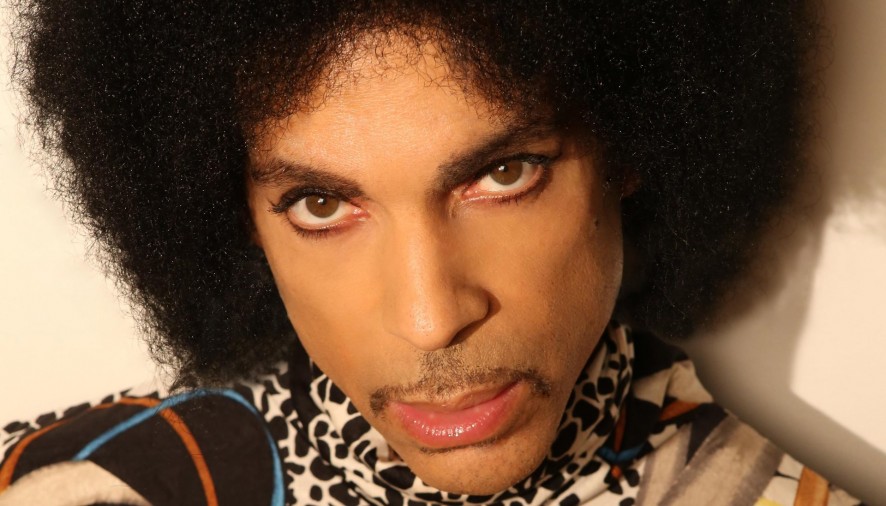Well, that came as a shock didn’t it? The loss of another global icon. Is our music industry set to shatter at the seams? Is expressionism and liberalism doomed? Or, is the passing of these pioneers of freedom of speech simply a natural goodbye, their work now done, the baton in our hands?
Prince Rogers Nelson was born in 1958 in Minneapolis. From the start he was heralded as a musical prodigy, teaching himself how to master many different instruments, including his voice. His unmistakable vocals and unmatchable range is said to have shadowed his insane guitar talents, with some likening him to Hendrix. His determination and passion is one of the many aspects of his character that set him apart from the rest, not to mention his propensity for ping-pong and flamboyant, androgynous stage personas.
But sadly, last Thursday, Prince died at the tender age of 57. He had beyond proven himself, his talents exceeding what many of us could fathom. Prince was an artist with whom many connected on a personal level. Throughout his prolific music career where he crossed genres and genders, he released 39 studio albums, four of these in the last 18 months. His musical vision and passion could not be tampered with: he was a perfectionist, invariably playing and recording every vocal and instrument on any one track or album. Though this earned him the reputation of being notoriously difficult to work with, he got his desired outcome and amalgamated genres that no artist dared to: funk, pop, RnB and rock. He successfully married them in a purple ceremony.
His first four albums were released in quick succession from when he turned 20 in 1978, and were unmistakably funk, a genre (if one must apply genres) embedded in all his music. However, his fame fountained from 1982’s double album release 1999. Ahead of his times in both subject matter and musical endeavor, this album introduced the world to ‘Little Red Corvette’ and the titanic title track, ‘1999’. After having supposedly written ‘Little Red Corvette’ in his sleep, Prince wished to further display his talents with the release of Purple Rain, a loosely autobiographical film. Despite cynicism over the motion picture, inevitably the soundtrack redeemed itself, with two of the five singles released from it taking the shape of ‘When Doves Cry’ and ‘Let’s Go Crazy’, which both made number one. The title track is one of his most iconic tunes, though only peaked at number two. He won an Oscar for original score in 1985 and other accolades include seven Grammies.
As his fame grew, so did his ambitions and experimentation, meaning Around the World In A Day did not satisfy the rock-craving fans. In spite of this, another of his most memorable tracks stemmed from this album – ‘Raspberry Beret’. From then on, the hits seemed relentless, but always embedded in albums holding powerful messages and observations, such as 1987’s Sign ‘O’The Times, an unapologetic and outspoken release, arguably his most diverse in terms of genre.
His attack on social and gender stereotypes provoked him to announce his retirement in 1993, when he changed his name to an unpronounceable symbol, embodying male and female genders. This transformation to ‘The Artist Formerly Known as Prince’ was a response to splitting from his label, Warner Brothers. After this, he became an advocate for independent releases and internet downloads, which was a novel endeavor at the time although it is now commonplace. His pioneering actions were not confined to his audible outputs.
Following his symbolic transformation (pardon the pun), he proceeded to put on impromptu gigs (and flamboyant attire), with many of his recent exerts much more intimate. These intimate concerts would play entirely by his rules – no cameras, no questions, just Prince being Prince with his girl band, the Revolutions – but not in an oppressive way. That being said, he held a record 21 concerts in as many days in 2007 at the O2 in London, his hard-graft also rumoured to have kept him awake for 6 days straight in the final days before his death.
Despite his genre and gender fluidity, and seemingly otherworldly presence on our planet, he was in fact human. For me, this is the hardest fact to come to terms with: the emotional investment into the music produced by the likes of Bowie and Prince, both by artist and listener, makes their passing so much harder to accept, heralded as they were as alien outsiders. But thank god their legacy can live on, and just think of the absolute uber band forming in heaven (or whichever planet they’ve all returned to): David Bowie, Maurice White, Prince, Phyfe Dawg, Lemmy all managed by George Martin. Someone please keep an eye on Iggy Pop, Joni Mitchell and Tom Waits…
Flora Tiley

